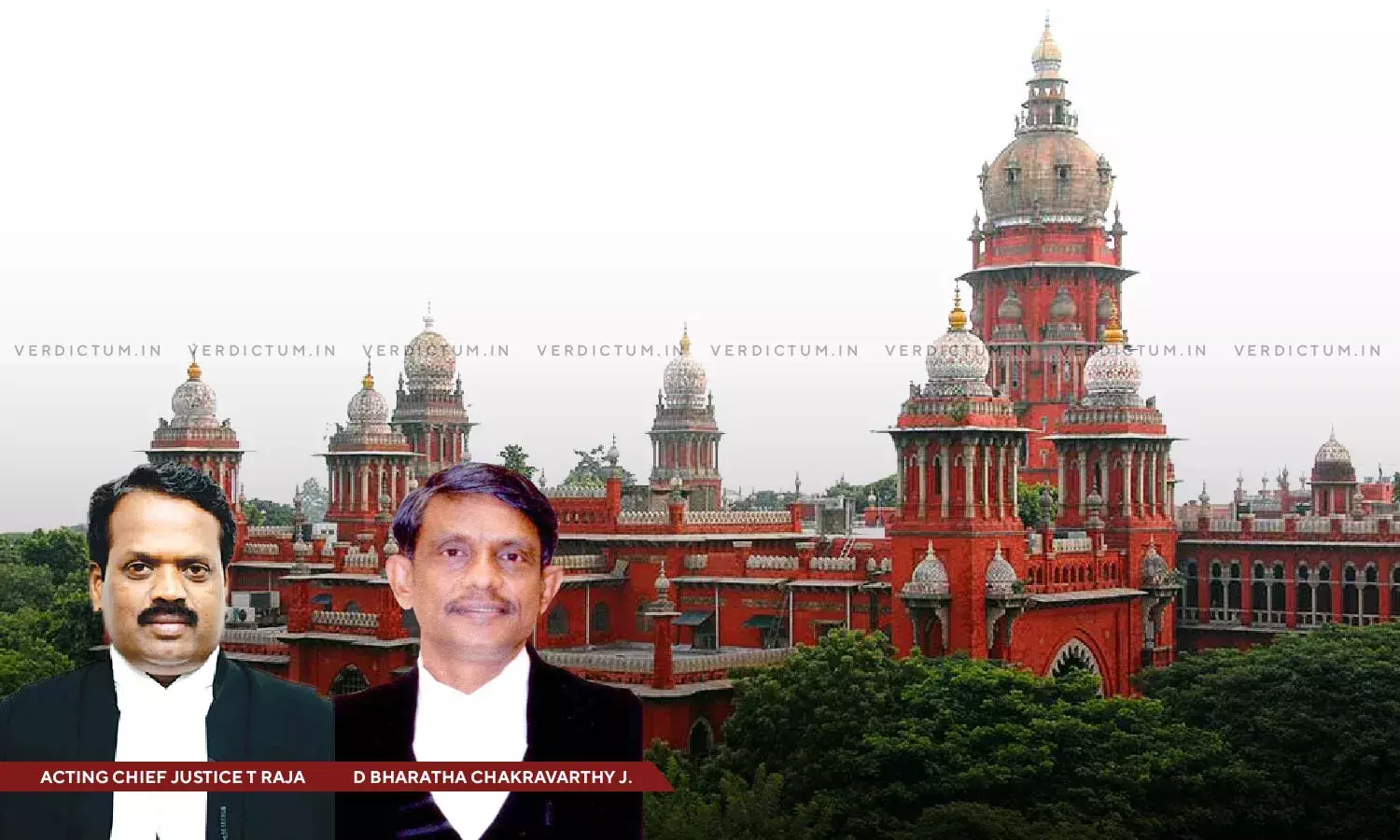Arbitral Tribunal Must Provide Opportunity To Parties To Present Their Case When Deviating From Agreed Procedure: Madras HC

The Madras High Court held that a duty is upon an Arbitral Tribunal to provide the parties with an opportunity to present their case and comment on the same when it decided to deviate from the already agreed procedure.
The Court said that an Arbitral Tribunal has the liberty to apply its own expertise and knowledge to arrive at a conclusion, but it shall also provide a full opportunity to the parties as per Section 18 of the Arbitration Act.
A Division Bench comprising Acting Chief Justice T. Raja and Justice D. Bharatha Chakravarthy asserted, “A duty is enjoined on the Tribunal to provide the parties of an opportunity to comment on matters when it decided to deviate from the already agreed procedure of evaluating the case of the parties on the basis of evidence adduced, both oral and documentary and to adopt the method of technical evaluation by its own expertise …”
The Bench in this matter noted that the Tribunal was unaware of the requirements of opportunity for the parties to present their respective cases.
“It is a well settled legal position that a mere omission to mention the provision of law in the cause title by itself is not a ground to non-suit the petitioner / CMRL …”, the Court also noted.
Senior Advocate G. Masilamani, Senior Advocate Vijaynarayan, and Advocate D. Balaraman appeared for the appellant while Additional Solicitor General N. Venkataraman, Senior Advocate Yashodvaradhan and Advocate S. Arujun Suresh appeared for the respondent.
Facts –
A batch of appeals was filed by the appellant in a case where a joint venture entered into an agreement with CMRL for carrying out the construction work for certain Chennai Metro Rail Stations. The disputes arose between the parties when the joint venture failed to do the work by the due date as originally agreed and hence, the parties opted for arbitral proceedings to settle the same. The Arbitral Tribunal ruled in favour of the joint venture as a result of which CMRL challenged the same before the High Court.
The Arbitral Tribunal called for additional materials being the data entered into by the parties during the execution of the contract and the relevant software, from the claimant after reserving orders and thereafter technically analysed the same on its own and consequently awarded the claim. Being aggrieved and dissatisfied with the order passed by the Single Judge of the High Court, joint venture sought for quashing the same and prayed before the Division Bench that the original arbitral award be confirmed. Whereas, CMRL challenged a portion of the said order wherein the parties were directed to go back to the Tribunal to prove some claims.
The following questions arose for consideration before the Division Bench –
1. Whether CMRL must be non-suited for not taking the ground of 'unable to present its case' before the Single Judge?
2. Whether CMRL has made out a ground for setting aside the award under Section 34(2)(a)(iii) of the Arbitration and Conciliation Act, 1996 before the Single Judge?
3. Whether the observations/directions of the Single Judge in the impugned judgment, enabling the parties to raise the issue once again before the Tribunals in pending Arbitrations, is sustainable?
While considering the first question the High Court observed, “It is a well settled legal position that a mere omission to mention the provision of law in the cause title by itself is not a ground to non-suit the petitioner / CMRL and we answer the question accordingly.”
With regard to the second question, the Court said that merely marking a copy of the mail to both sides does not amount to a grant of opportunity when the parties had no idea or clue as to what the purpose was.
“The error committed by the Tribunal thus is apparent on the face of the record, substantial and fundamental in this case as only the additional materials forms the basis for the core reasoning of the award. Therefore, it is a compelling reason for the Court to set aside the arbitral award. Therefore, we do not find any error whatsoever in the order of the learned Single Judge inasmuch as it sets aside both the awards …”, the Court further said.
While dealing with the third and last question, the Court noted that once the award has been set aside, the Court has no other option than to leave the matter for de novo proceedings by the parties in the manner known to law.
“… the observations / directions contained in paragraph No. 22 of the judgment under appeal cannot be sustained and they are set aside”, observed the Court.
Accordingly, the Court upheld the order of the Single Bench of setting aside the arbitral awards.
Cause Title- Transtonnelstroy - Afcons (JV) v. Chennai Metro Rail Ltd.
Click here to read/download the Judgment


